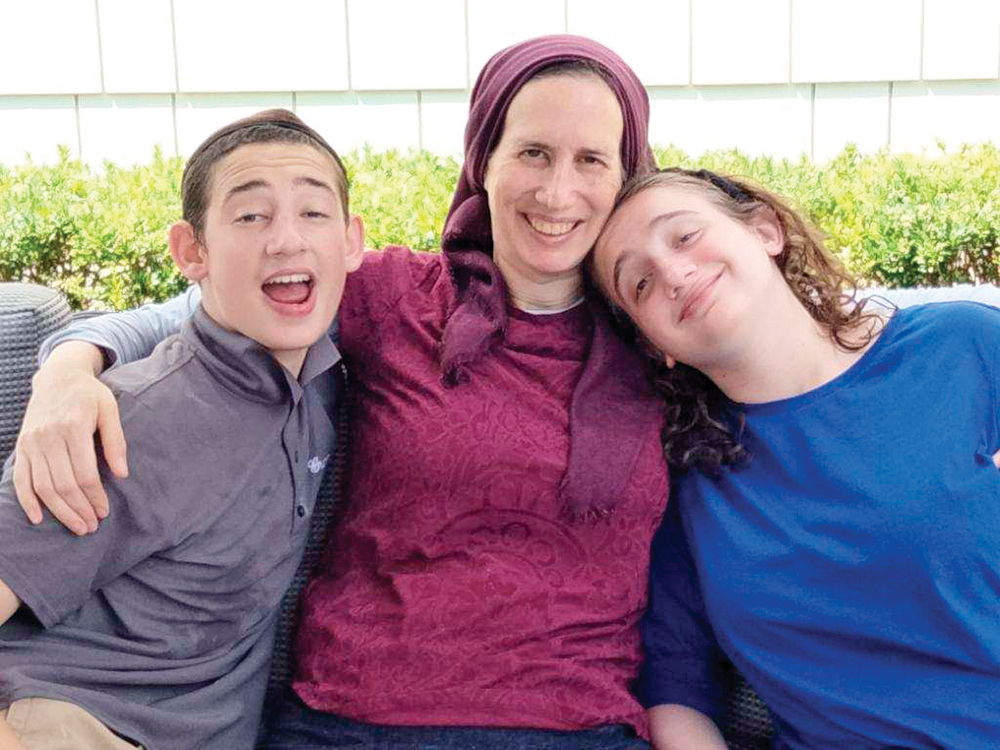
I once heard a rav speaking at a yahrzeit of a congregant’s mother. He did not know the nifteres very well, so he spoke about the relationship between children and their mothers. Among his remarks, he quoted the following Gemara (Kiddushin 31b):
רַב יוֹסֵף כִּי הֲוָה שָׁמַע קָל כַּרְעָא דְאִמֵּיהּ, אָמַר: אֵיקוּם מִקַּמֵּי שְׁכִינָה דְּאָתְיָא
When Rav Yosef heard his mother’s footsteps, he would say: I will stand before the arriving Divine Presence.
The rav concluded that from this Gemara we can understand Hashem is with every mother in helping her achieve her task of raising the next generation. Rav Yosef recognized that mothers have the presence of Hashem with them at all times; therefore he always made sure to treat his mother with the same respect one would give to Hashem.
Upon hearing this, I thought if that’s what the Gemara says about all mothers, I wonder what it would say about mothers of children with special needs. I could not find a Gemara to support this idea but I did remember reading a beautiful piece by Erma Bombeck called, “The Special Mother.” Bombeck imagines the conversation between God and one of His angels as He is deciding to which woman He will give a special needs child.
He passes the name of a woman to an angel who is curious. “Why this one? She’s so happy.”
“Exactly,” Hashem responds.”Could I give this special needs child to a mother who does not know laughter? That would be cruel.”
“But has she patience?” asks the angel.
“I don’t want her to have too much patience or she will drown in a sea of self-pity and despair. Once the shock and resentment wears off, she’ll handle it.”
“I watched her today. She has that feeling of self and independence that is so rare and so necessary in a mother. You see, the child I’m going to give her has its own world. She has to make the child live in her world, and that’s not going to be easy.This one is perfect; she has just enough selfishness.”
The angel gasps. “Selfishness? Is that a virtue?”
God nods. “If she can’t separate herself from the child occasionally, she’ll never survive. Yes, here is a woman whom I will bless with a less than perfect child. She doesn’t realize it yet, but she is to be envied. She will never take a spoken word for granted. She will never consider a ‘step’ ordinary. When her child says ‘Mama’ for the first time, she will be present at a miracle, and she will know it!”
“I will permit her to see clearly the things I see—ignorance, cruelty, prejudice—and allow her to rise above them. She will never be alone. I will be at her side every minute of every day of her life because she is doing My work as surely as if she is here by My side.”
“And who will be her ’patron saint?’” asked the angel, his pen poised in mid-air.
God smiled, “A mirror will suffice.”
I cannot begin to say how many times I have heard Rochel referred to as a tzadeikes. After hearing the Gemara explained by the rav (which triggered my memory of “The Special Mother”), I now completely understand why this was valid.
The Shechina of Hashem is with her every moment of every day, and she knows it. This is what allows her to do the herculean job of raising our children,four of whom have special needs. The Yiddish saying “Little children, little problems; big children, big problems” applies tenfold when dealing with children with special needs. And Rochel does it with perseverance and a smile. And this is why, when Rochel and I moved to town, a tzadeikes came to the city. The town just didn’t know it then.
They know now.
Rabbi Yehuda Minchenberg is a fifth-grade rebbe during the school year and teaches Torah at Camp Regesh during the summer. At home, he (together with his wife, Laurie), is the parent of six children, four of whom have varying special needs.








